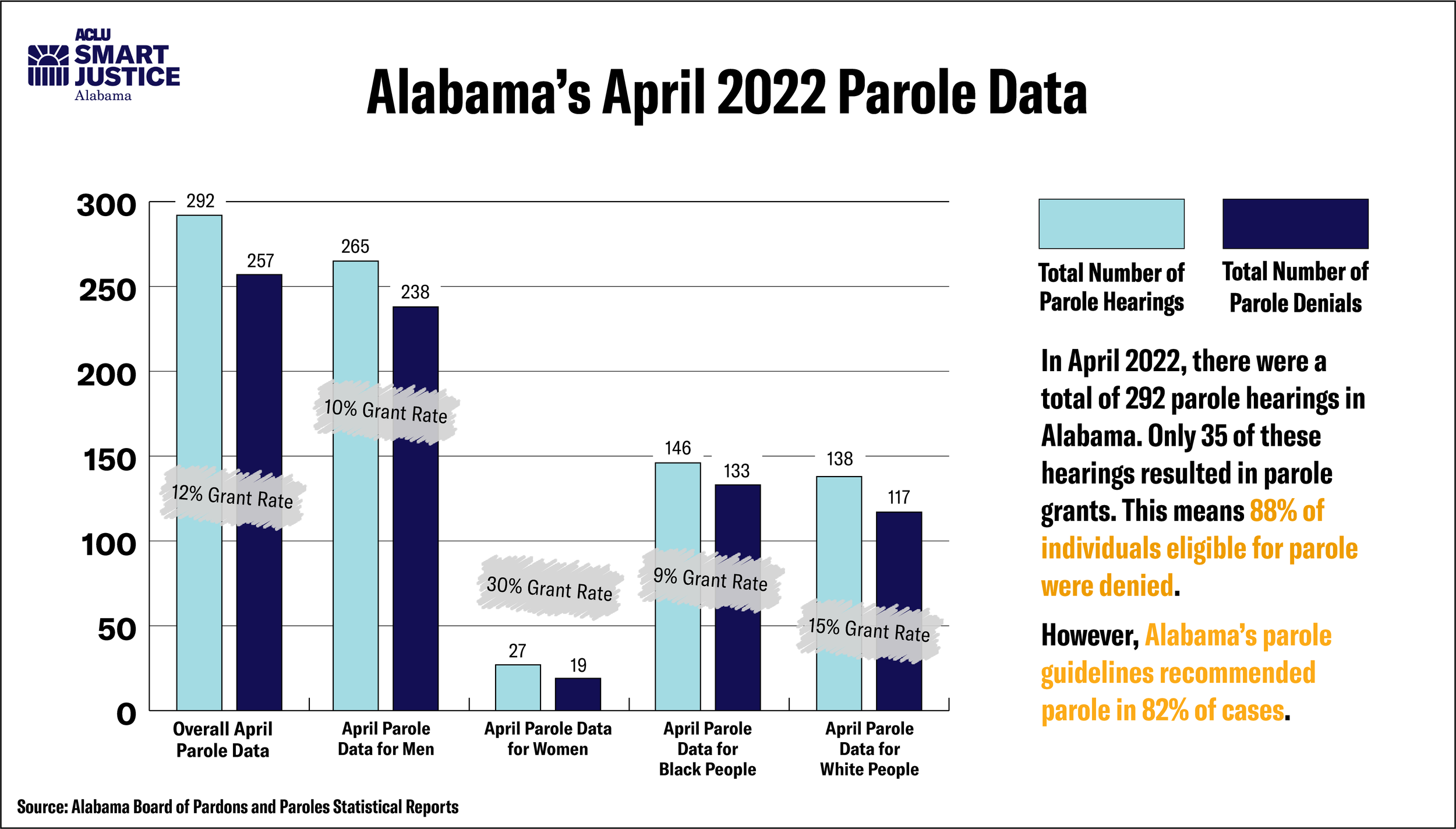Report: Parole Denied
Parole Board Members: (L-R) Leigh Gwathney, Dwayne Spurlock and Darryl Littleton
INSIDE THE PUNISHING PRACTICES OF
ALABAMA’S PAROLE BOARD
BY BETH SHELBURNE, INVESTIGATIVE REPORTER, CAMPAIGN FOR SMART JUSTICE
Since 2019, Alabama's parole board has overseen the largest denial of parole grants in state history. The significance of these practices is a matter of life and death for people inside Alabama's unconstitutionally violent and overcrowded prisons. Since the U.S. Department of Justice filed suit against the state in 2020, the parole board has doubled down, denying release to almost every parole-eligible candidate with a violent offense on their record, as well as many candidates serving time for drug and property crimes, even when the board’s own guidelines recommend that the individual be paroled out of prison.
Alabama does not allow candidates for parole to attend their own hearings. They must rely on family and friends to advocate for them at the board hearings in Montgomery, with no state office or state-funded organization supporting parole advocacy. An examination of the April parole hearing minutes shows only 81 of the 292 hearings, or 27 percent, included witness testimony supporting parole. That means almost three out of four candidates for parole had no legal representation or witness advocates at their hearing.
In Fiscal Year (FY) 2022, parole grants have fallen to the lowest level on record. The board has denied parole to 89 percent of eligible people, bringing the parole grant rate to a new low of just 11 percent. As we’ve reported, this is worsening prison overcrowding at a time when Alabama has been ordered to address it, and is also spreading despair throughout the prison population, fueling drug use and record overdose deaths.
SOURCE: ALABAMA BUREAU OF PARDONS AND PAROLES - APRIL 2022 STATISTICAL REPORT
The rate of parole denial is even more severe for black people in Alabama prisons. The current parole board has granted relief to white candidates at more than double the rate of black candidates. So far in FY 2022, 93 percent of black parole candidates have been denied, while 84 percent of white candidates have been denied. Black candidates saw a grant rate of just 7 percent compared to white candidates at 16 percent. The board has provided no explanation for this disparity.
NOTE: DATA INCLUDES OCTOBER 2021 - APRIL 2022 PAROLE RESULTS
In April of 2022, parole guidelines recommended parole in 82 percent of cases that came before the board. However, the board, defying its own guidelines, granted parole in just 12 percent of eligible cases, or 35 out of 292. Of the 35 granted parole, all but three, or 91 percent, were serving time for drug or property crimes. The other three granted parole were serving time for first-degree robbery, which is defined as violent, whether or not the crime involves a physical injury.
There is little justification in denying parole based exclusively on the nature of the offense. national studies show lower rates of recidivism among people in prison for violent offenses compared to the recidivism of people in prison for property or drug crimes. Because of this, many expert organizations recommend that parole boards engage in more rational, evidence-based decision making, instead of continuing the reluctance of granting release to eligible people, a major driver of mass incarceration.
Beth Shelburne is an investigative reporter for the Campaign for Smart Justice with the ACLU of Alabama. For investigative reporting on Alabama’s prison and pardons & paroles systems, follow her on Twitter at @bshelburne.




